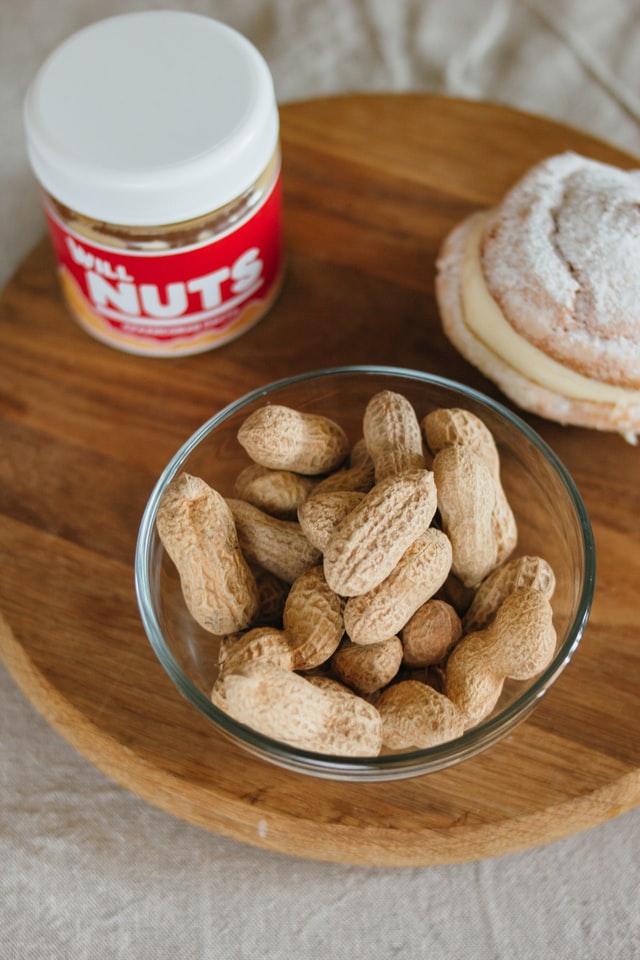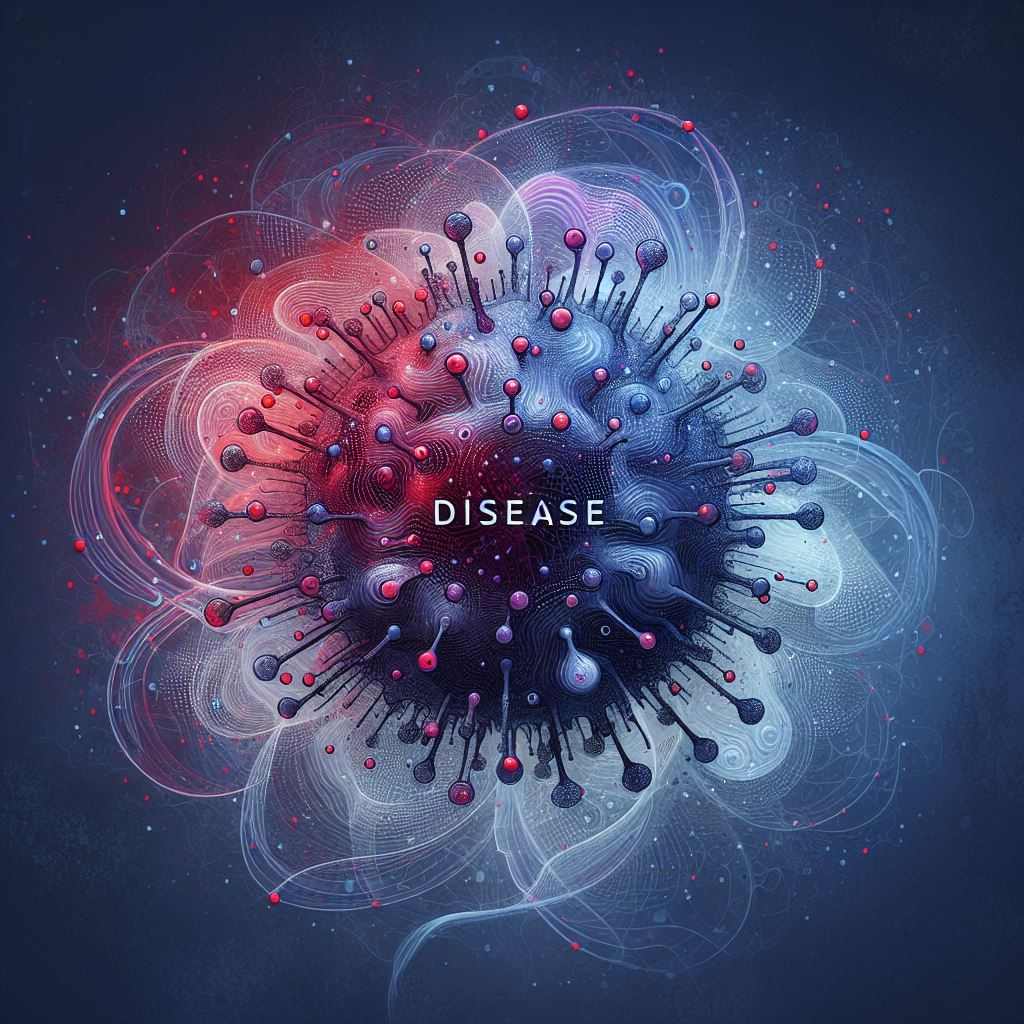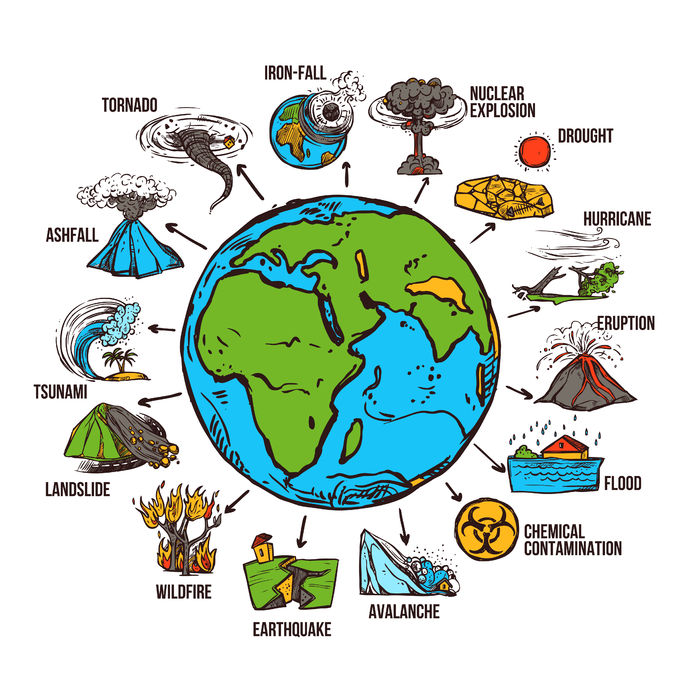- Peanut, also known as groundnut, is a legume crop that is mostly famous for its edible seeds. It is widely grown in the tropics and subtropics. Peanut is high in oil content, due to which it is called an oil-seed crop, and it is mainly grown in Asian countries. India is the second-largest producer of peanuts in Asia, next to China, and peanuts are used for roasting, making peanut flour, and also extracting oil from peanuts as peanut oil.
- Peanuts are rich in calories, water, protein, carbs, sugar, fiber, and fat.
- A large proportion of the world’s peanuts are harvested due to their peanut oil. Peanut oils are used as cooking oils.
- Peanuts are a great source of plant-based protein, and their protein content ranges from 22 to 30% of their total calories.
- Peanuts contain monounsaturated and polyunsaturated fatty acids. Fatty acids are an essential part of our diet.
- As the name suggests, peanuts are not nuts; they are legumes because they are not grown on trees but on the ground.
- Peanut butter is the most famous recipe made out of peanuts. Peanut butter was originally made for people who do not have teeth.
- Peanuts are found to reduce weight and are thus a good snack option for people who are willing to lose weight. Some people think that peanuts will make them fat, but the opposite is true; even people with diabetes can consume peanuts without any issue.
- It is OK to eat roasted and salted peanuts as part of your balanced diet.
- Peanuts are not good for everyone because some people have peanut allergies, and that’s a different kind of story. It is better to start eating peanuts as early as possible to avoid peanut allergies.
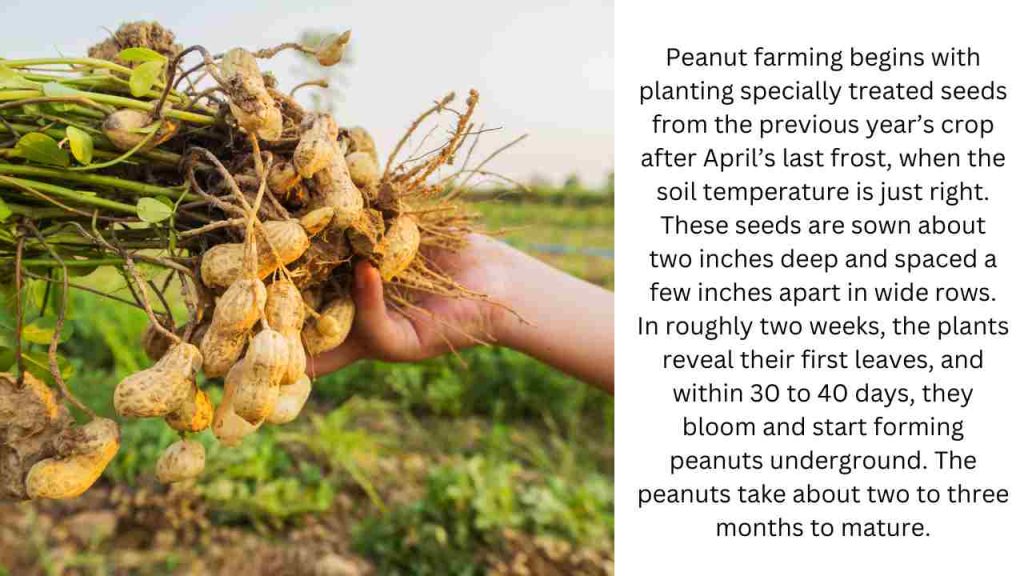
How Peanuts are grown
Many people think that peanuts are grown on trees like walnuts, but this is not true. Peanuts are grown underground in the roots of the plant, just like a potato plant.
Peanuts require calcium-rich, sandy soil. The process of planting and harvesting peanuts takes several months. Initially, farmers sow peanuts by setting the proper depth and spacing between the seeds in the ground. They wait for the soil to warm up and the cold weather to pass before doing this. The plants begin to unfold their leaves and grow. After that, they flower and produce peanuts underground. When the peanuts are ready, which is in a few months, the farmer digs them up with a special machine. The plants are spread out to dry after this machine shakes off the dirt. After drying, a different machine separates the plants and peanuts. After that, the peanuts are dried even further until almost all of their water is gone. They are then sold after being quality-checked. The peanuts can then be shelled or kept in their shells and stored in a cool place until they are ready to be eaten or used.
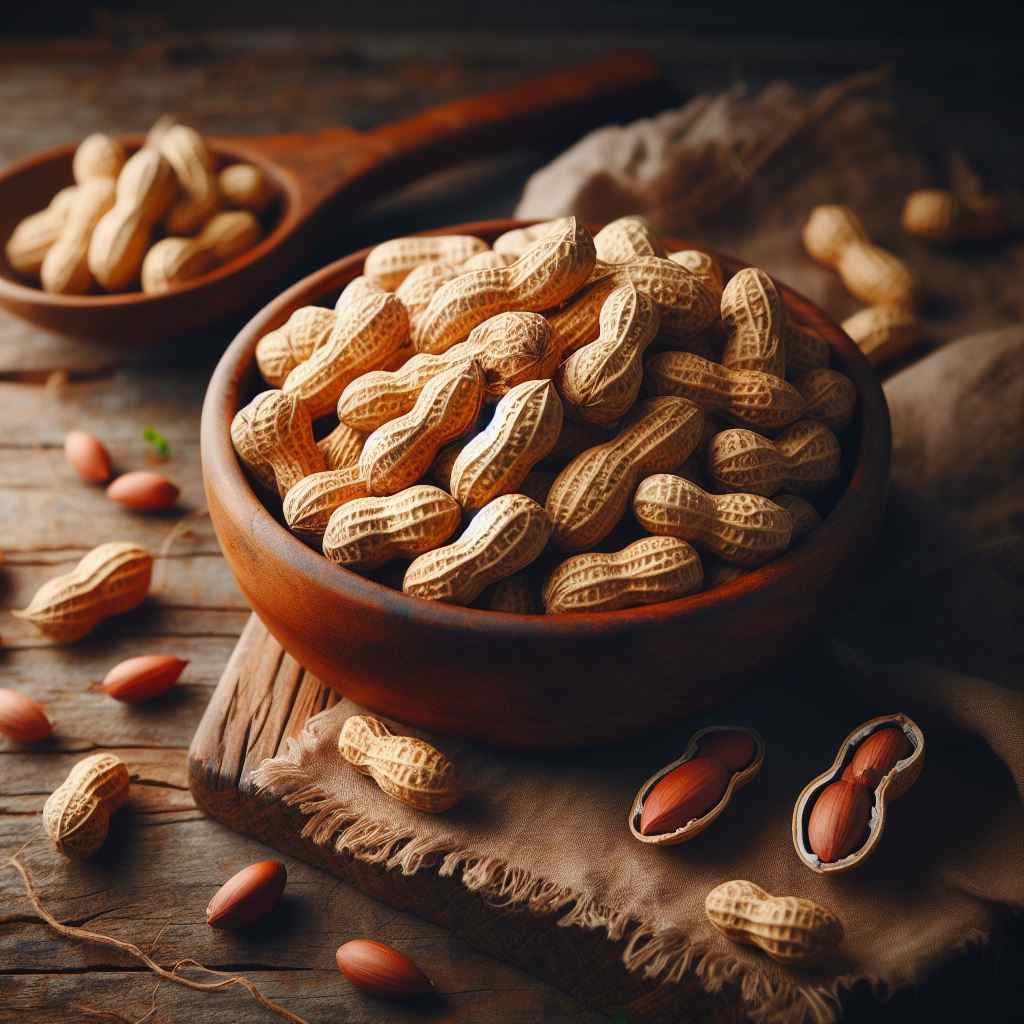
Health Benefits of Peanuts
The size of peanuts is very small, and they are grown in the roots of the plant. These nuts, which are frequently found in lunchboxes and snack bowls, are not only delicious but also a great source of nutrients that can help you stay healthy. Here’s a quick summary of why peanuts make such a wise snack option.
First off, peanuts are a great source of protein. This is the stuff that makes muscles grow, and peanuts are a great source of it. For those who must obtain their protein from other foods and do not eat meat, they are particularly beneficial.
And then there is peanut fat. It is not the evil kind, though! The fats in peanuts are beneficial to the heart. They can lower your chance of heart issues and help you maintain low cholesterol.
Additionally, peanuts are low in carbohydrates, so they do not cause a rapid rise in blood sugar. For those who need to watch their sugar intake or who have diabetes, this is very important.
A treasure trove of vitamins and minerals can be found in peanuts. They contain vitamins that help your body stay healthy and produce energy, like vitamin E, which keeps your skin looking good. They also contain minerals like phosphorus, which is necessary for strong bones, and magnesium, which supports the proper function of your muscles and nerves.
Did you know that peanuts contain compounds that prevent cell damage to your body? Antioxidants are what they are called, and they help prevent illness.
Consuming peanuts may even assist you in controlling your weight. Their high protein content helps you feel satisfied without consuming a lot of calories.
Consuming nuts, such as peanuts, may extend your life, according to certain research. Additionally, peanuts are found to reduce the risk of some critical illnesses, like type 2 diabetes and some forms of cancer.
Thus, the next time you are in the mood for a snack, pick up some peanuts. In addition to being delicious, they have numerous health benefits!

